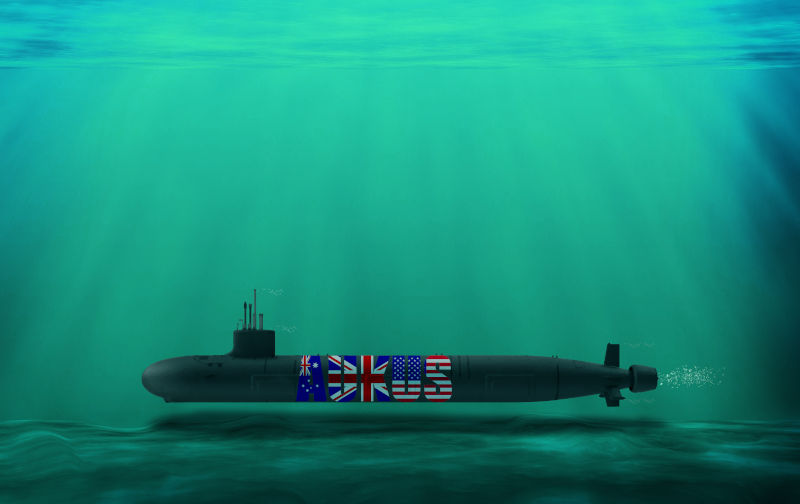Alls not quiet on the home front
June 10, 2023
Labors ability to seamlessly follow in the Coalitions strategic footsteps is showing welcome signs of weakening as opponents of AUKUS and the submarine deal find their voice.
By any measure, Anthony Albanese and his government have been a disappointment. True, Albanese has an authentic, anachronistic and atypical backstory, but that hasnt stopped him from displaying a startling lack of ambition when it comes to addressing traditional Labor issues. There are signs, however, that despite his personal popularity, there may be limits to small target politics.
Speaking of targets, turning Western Australia into the Chinese nuclear variety as a direct consequence of basing submarines at HMAS Stirling is not likely to make the ALP popular when this reality eventually dawns on the locals. This will almost certainly include American nuclear-armed submarines as well as ours. Which begs the question of why we need to buy a handful as well, if were obligingly hosting our trusty allys.
Many people have pointed out that the principal purpose of the new subs is to demonstrate our continuing fealty and commitment to the alliance. Given that weve been involved in all of Americas wars of choice since World War 2, despite little obvious strategic relevance to Australia, one might hope that our loyalty was not in doubt. On the contrary, it is Americas reliability that is most in doubt, as the chaotic exit from Afghanistan and the real prospect of Donald Trumps return remind us.
The less said about Australias participation in the Afghanistan conflict the better, perhaps, but its not controversial to suggest that the gloss has come off the reputation of Australias armed forces of late. The Australian public also seems to be recognising that defence spending was out of control and without adequate scrutiny even before the much-criticised submarine project.
Whatever the strategic merits of that initiative, however, there seems to be an unquestioned assumption that the politics of submarine building in South Australia and WA can only be positive. And yet the extraordinary expense involved can only be justified against what former home affairs department secretary Mike Pezzullo and Peter Dutton memorably described as the drums of war beating in our region.
What this looks like in practise, is not much better than the Morrison governments tin-eared anti-China invective. While relations with China have undoubtedly improved under Labor (they could hardly be worse), Albaneses much-anticipated speech to the Shangri-La Dialogue contained both the predictable puffery about American leadership, and a direct warning of the possible consequences of Chinas destabilising actions against Taiwan and the South and East China Seas.
True, China wasnt named, but its not too difficult to connect the dots, especially for people of Chinese ancestry who now live in Australia. As Wanning Sun has pointed out, To many Chinese Australian voters, politics has become intensely personal.The ALP picked up marginal seats in Victoria, NSW and WA in part because Chinese-Australians changed their political preferences.
WA in particular has become critical to Federal Labors fortunes in an increasingly complex and unpredictable Australian electorate. Former Liberal Premier Colin Barnett famously claimed that Beijing was more important than Canberra in shaping WAs future.With the departure of the improbably popular Mark McGowan, the political landscape has begun to change, and its far from clear that the promise of new submarine-related jobs and investment will be enough to secure the ALPs currently dominant position.
Significantly, even some of the ALPs traditionally rusted-on supporters in the union movement have begun to express their unhappiness with the direction of the governments strategic policy and the wisdom of the proposed submarine acquisition in particular. ALP policy directly conflicts with the ACTUs long-standing opposition to nuclear power, waste and proliferation.
There are even signs of growing opposition at the grassroots level. Although, to judge from personal observation, there arent too many young people taking part in focused initiatives like Stop Aukus WA, and the WA Greens. perhaps theyve already given up on both the older generation and the prospects of making real changes in the way security is defined and pursued.
While understandable, perhaps, it remains the case that the opportunity costs of the subs project are immense, and stop the government investing in things that might directly benefit the young, like social housing or free education of a sort the current generation of policymakers benefited from. Who knows, they might even do something about the environment.
I find it difficult to imagine the Albanese government changing course on the subs project and redirecting spending in more useful and necessary ways; absent a protest movement of the size and enthusiasm of the anti-Vietnam war variety, at least. Even then we would need a political leader of Whitlamesque proportions who was capable of leading rather than supinely following the supposed logic and obligations of the alliance and regional geopolitics.
Domestic and international politics are inexorably interconnected, but even a country like Australia is not without potential agency. As Albanese rightly pointed out, our region is experiencing the biggest military build-up since the Second World War; to which Australia is making an outsized contribution.
We know how arms races tend to end. Surely there are more imaginative ways of being a stronger partner and a more effective contributor to stability in our region than buying submarines that have what Richard Marles euphemistically calls impactful projection. If this is the best the ALP can come up with at this pivotal moment in history, bring on the next election.

